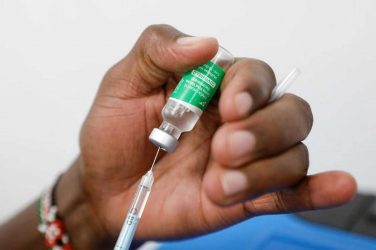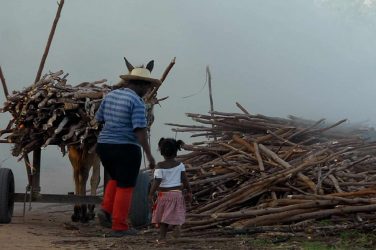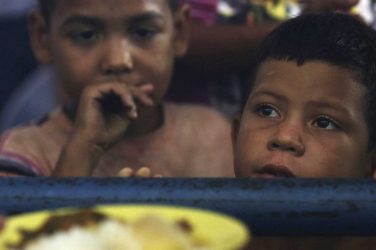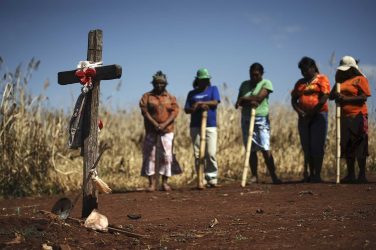 Nearly half of all people imprisoned in Brazil’s third most populous state, Rio de Janeiro, are being detained without a conviction, helping to produce an explosion in the country’s prison population that is similar to the crisis in the United States, according to a newly-released report.
Nearly half of all people imprisoned in Brazil’s third most populous state, Rio de Janeiro, are being detained without a conviction, helping to produce an explosion in the country’s prison population that is similar to the crisis in the United States, according to a newly-released report.
The investigation, entitled, “When Freedom is the Exception” was written by two nongovernmental organizations, Global Justice, and Rio’s State Mechanism for Preventing and Combating Torture, and its findings are based on 20 unscheduled visits to several detention centers in Rio, as well as the observation of 313 detention hearings from mid-2015 to June 2016.
The report concluded that 44 percent, or approximately 22,000 people, were held in jails or prisons without a conviction over that period.
“Beyond determining the number of people in provisional detention, we had the goal of determining the conditions of compliance with provisional arrest in Rio, and what was confirmed is that, in fact, convicted prisoners are (held) together (with) those in provisional detention, which violates the law of criminal enforcement,” Guilherme Pontes, a researcher with Global Justice, told reporters.

“In addition, we also followed the custody hearings and were able to determine that ill-treatment and torture are still flagrantly very present in prisons. We had an emblematic case in which a judge asked, after the accused said that he had been tortured, if he was sure or was just subject to an ‘energetic detention.'”
The report details the legal framework meant to ensure the rights of those accused of crimes is respected but found that the reality of the situation falls far short of what the law outlines.
With more blacks than any other country in the Americas, race plays a role in Brazil’s incarceration crisis. According to government figures, in Brazil, 55 percent of those in detention are younger than 29 and 61.67 percent are black.
The latter figure could in fact be higher but the data is provided by the corrections system and not by detainees themselves who may self-identify as black.
The 80-page report also outlines the policy and legislative revisions, mostly strengthening Brazil’s drug-trafficking laws, that have produced an explosion in Brazil’s prison population since 1988.
The late 1980s coincides with the launch of the United States own war on drugs, which also resulted in an explosion of the prison population, and has been widely criticized as costly, counterproductive, and racially-biased.
“As it turns out, the provisional arrest is, in theory, one exceptional measure in accordance with the rules of Brazilian democratic rule of law. However, what occurs in reality in the selective Brazilian penal system is the mass provisional imprisonment of poor Black youth. For them, provisional detention is the rule and freedom is the exception,” read the report.
A 2014 report by the Ministry of Justice indicated that 28 percent of those convicted were in jail for drug-related offenses, the largest group, followed by theft at 25 percent. A 2010 study by Luciana Boiteux cited in the report found that people imprisoned for drug-related offenses have been steadily increasing over the years.
An analysis of the growth of the prison population from 1990 to 2014 led researchers to conclude that there was “no doubt that the legal framework concerning drugs has been accompanied by an increase in the prison population.”
“It must be noted that in most cases, after months or even years in preventative detention, the defendants are not even sentenced to serve time in prison,” says the report.
Researchers also found that policies implemented during so-called mega events hosted by Brazil in recent years, such as the World Cup, also contributed to the decline of respect for human rights and an increase in incarceration.
“The reason for that is it is believed that to have a safe city (requires) a policy of more incarceration,” Renata Lira said.
The report concludes that as a result of the investigation that an “immediate and radical change in crime and prison policy” is necessary and makes a series of recommendations for both the state and federal governments.
Among their recommendations, the report calls for reforms in drug laws and policies, a reduction in the maximum amount of time someone can be preventative detention, and for suspects to put before a judge within 24 hours after their detention.
Brasil de Fato











